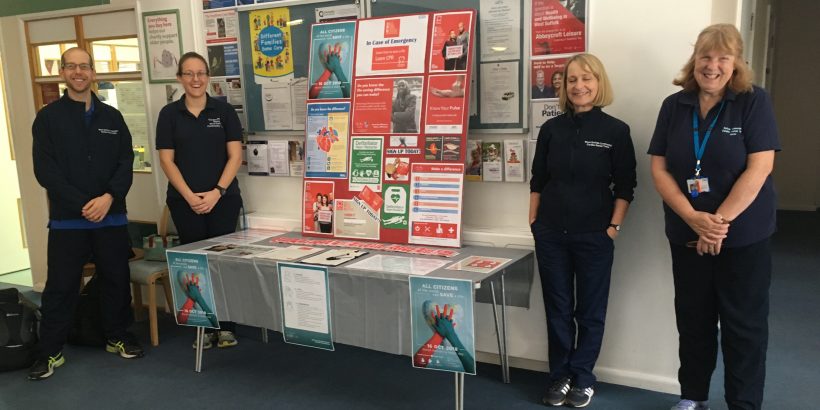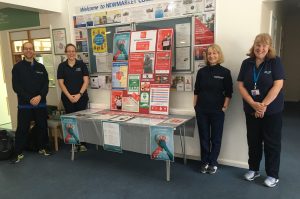Specialist nurses from a West Suffolk NHS Foundation Trust (WSFT) team are supporting a nationwide campaign to train people to take immediate action when someone suffers a cardiac arrest.
Increasing the number of people in our local community who can intervene, from carrying out cardiopulmonary resuscitation (CPR) to knowing where defibrillators are stored, could save many lives every year.
The WSFT community cardiac rehabilitation team already provides bystander CPR training to patients and their families as part of their treatment programme. Now the Sudbury-based team that cares for people across west Suffolk, is offering sessions over the next year that are open to anyone.
Simone Meldrum, cardiac rehabilitation nurse specialist, said: âMany patients and relatives feel they would be unable to help either physically or through lack of confidence in an emergency. After the training, the difference in confidence is clear to see, with participants leaving feeling they would be happy to give it a go. They find it particularly useful learning about accessing automated external defibrillators locally.â
Simone continued: âTo date we have trained more than 150 people. We see the positive impact of bystander CPR, with survivors often being referred to our west Suffolk community cardiac rehab programme.â
The team is working with the British Heart Foundation (BHF) and a local Heartstart trainer as part of the charityâs Call Push Rescue campaign to create a nation of lifesavers.
The BHF reported in 2014 that every year in the UK more than 30,000 cardiac arrests happen out of hospital, with a survival rate of only one in 10. In Norway, where more people are trained in bystander the survival rate is one in four, and the charity estimates replicating this in our country could save 5,000 lives a year.
Simone said: â80% of out of hospital cardiac arrests happen at home with 20% in public places; this is why it is important to raise awareness and train up as many people as possible. Evidence shows that bystander CPR increases survival rates by two to three times, so the key message is that anyone can help in cases of emergency whether first-aid trained or not. Doing something is always better than doing nothing at all and learning simple steps really can make the difference between life and death.â
The team is running a year-long programme of training sessions which anyone is welcome to join. To book on any of these sessions, telephone 01787 886376. All the sessions run from 2.00pm to 3.30pm.


